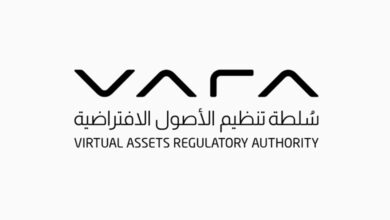Bahrain Strengthens Regional Role with Comprehensive Stablecoin Framework

The Central Bank of Bahrain (CBB) officially issued a comprehensive regulatory framework for stablecoins, marking a major milestone in the region’s digital asset landscape. This development follows a public consultation launched in October 2024 and positions Bahrain as a regional leader in progressive crypto regulation.
Under the new rules, the CBB now permits the issuance of fiat-backed stablecoins denominated in Bahraini Dinar (BHD), U.S. Dollar (USD), and other fiat currencies approved by the CBB. The framework allows both stablecoin issuers and custodians to obtain official licenses, signaling a new era of legitimacy and regulatory clarity for the sector.
CBB’s Regulatory Framework: Key Highlights
The stablecoin module—part of Volume 6 of the CBB Rulebook—is effective immediately and sets out stringent criteria for licensing and operations. It outlines how issuers must manage total supply, minting and burning mechanisms, and reserve asset frameworks. Existing licensed entities must obtain CBB’s written approval before launching any stablecoin-related services, submitting detailed operational plans and resource requirements.
A standout feature of the regulation is the green light for yield-bearing stablecoins, which allow holders to earn passive income through interest or rewards generated from reserve asset investments. The CBB has imposed strict controls to ensure such yields are sustainable and do not threaten the coin’s price stability or the issuer’s financial health—balancing innovation with financial prudence.
To qualify for a license, stablecoin issuers must demonstrate at least a three-year track record in the crypto asset sector or in issuing stablecoins. The licensing fee is performance-based, set at 0.25% of operating expenses, with fees ranging from a minimum of BHD 5,000 to a maximum of BHD 12,000.
The framework also prioritizes financial integrity, requiring robust anti-money laundering (AML) and counter-terrorist financing (CTF) controls. Issuers must maintain strong governance systems to ensure transparency and compliance.
High-Quality Reserve Asset Requirements
To protect stablecoin holders and preserve economic stability, the CBB mandates that reserve assets be highly liquid and secure. Acceptable reserves include:
- Cash and deposits with banks rated AA- or higher
- Debt securities issued by the central bank
- Repurchase agreements backed by short-term government money market funds
The CBB retains the authority to reject any stablecoin application if it deems the issuance harmful to Bahrain’s economy, investors, or financial markets.
Bahrain vs UAE: A More Progressive Approach
Compared to the UAE’s Central Bank, which only permits AED-denominated stablecoins for local payments, Bahrain’s approach is notably broader and more flexible. The CBB permits both BHD and USD-backed stablecoins and includes options for Sharia-compliant models. Additionally, its allowance for yield-generating stablecoins sets it apart as a forward-thinking regulator in the region.
This regulatory clarity and innovation-friendly stance are expected to draw major global crypto brands to Bahrain, helping the country position itself as a thriving hub for digital assets and blockchain innovation in the Middle East.
With this landmark framework, Bahrain is poised to accelerate the growth of its digital economy, attract new players, and become a key destination for regulated crypto projects in the region.





